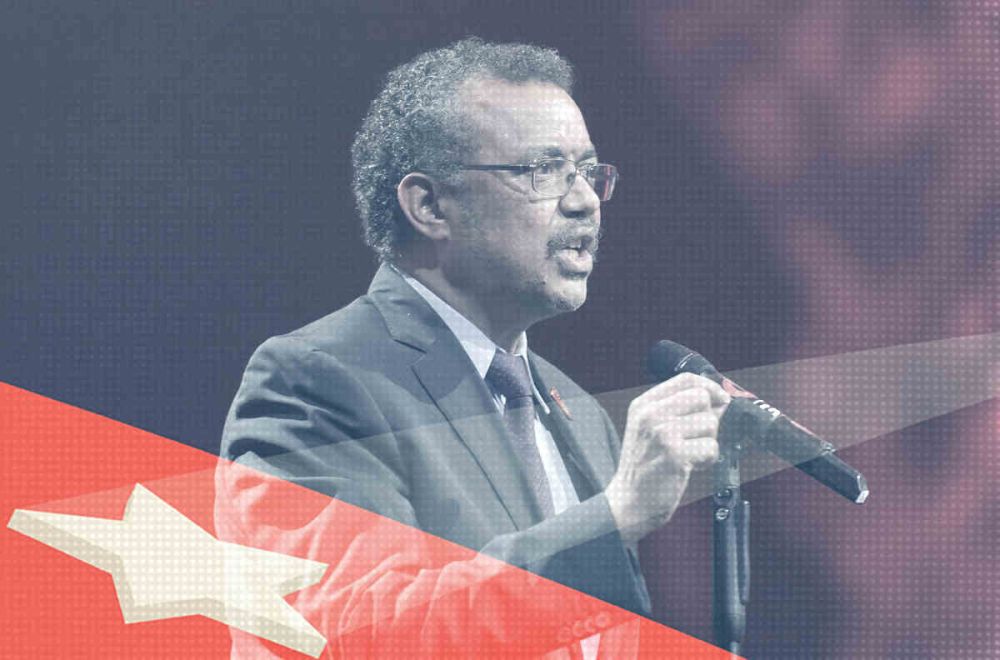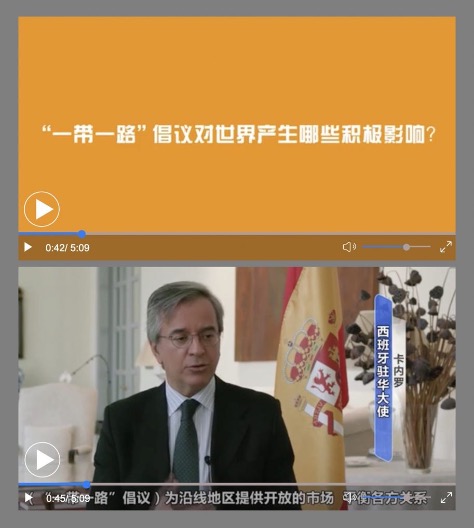
Tedros appears at the Global Citizen Festival Hamburg in 2017. Image by Frank Schwichtenberg, available at Wikimedia Commons under CC license.
As festivities for the Beijing Winter Olympics kicked off earlier this year, the WHO’s director general, Dr Tedros Adhanom Ghebreyesus, was the toast of the town in China’s capital. On February 5, the day after attending the opening ceremony of the Games with other foreign dignitaries, he was formally welcomed by Premier Li Keqiang at the Diaoyutai State Guesthouse. The next day he met with China’s foreign minister, Wang Yi (王毅), and the official People’s Daily quoted him as having praised the sporting event for “bringing unity, peace and hope to the world under the pandemic,” and for “helping everyone get through these difficult times.”
Three months later, Tedros is out in the cold. At a WHO press briefing on Tuesday, just five days after Xi Jinping signaled the leadership’s adamant resistance to any change in China’s Covid policy, the health official urged China to reconsider. “When we talk about the zero COVID strategy, we don’t think that it is sustainable considering the behavior of the virus now and what we anticipate in the future, and especially when we have now a good knowledge, understanding of the virus,” he said. “When we have good tools to use, transiting into another strategy will be very important.”
Tedros’ remarks were swiftly censored on Chinese social media, and state media have steered clear of the story. A search for coverage of “Tedros” (谭德塞) in a database of more than 300 mainland Chinese newspapers from May 10 to May 13 returns just one report from the Global Times newspaper, printed on page three of yesterday’s edition. The story, “Foreign Ministry Responds to Tedros’ Views” (外交部回应谭德塞看法), which first appeared online on May 11, is a simple reporting of a statement that day by Foreign Ministry Spokesman Zhao Lijian (赵立坚), who emphasized the efficiency of China’s “surgical lockdown” and suggested that criticisms of its policy were “irresponsible.”
The only other report on Tedros from China’s state media is an online story from the Global Times alleging that foreign media, including Reuters, willfully took the remarks of WHO officials out of context this week. The story suggests that another WHO expert expressed sympathy during the press briefing with China’s “zero Covid” policy given its immense population. In fact, no such language appears in the official WHO transcript – though Mike Ryan, executive director of the WHO’s Health Emergencies Program, did follow on Tedros’ remarks by saying that all government efforts to fight Covid-19 “should show due respect to individual and human rights.”
There has been no mention of Tedros in the past week by the official Xinhua News Agency, according to a search of the agency’s website. Searches on Weibo now turn up just a smattering of private posts, but nothing from the official accounts of Chinese state media.
It is a revealing change of fortune for a public figure who over the past two years has been touted again and again by state outlets to support China’s Covid policies. Tedros, now voicing mild and constructive criticism of China’s policies, can no longer be taken at his word.
Cherry-Picking Positivity
On May 6, the day after the meeting of the Politburo Standing Committee at which Xi Jinping signaled his resolve in sticking to “zero Covid,” Tedros was quoted repeatedly in the official People’s Daily newspaper. An “International Viewpoint” column called “Continuously Monitoring the Virus, Strengthening Prevention and Control” quoted Tedros calling on all countries to continue monitoring of Covid-19 and “not to turn a blind eye in the face of a deadly virus.” Here was the world’s top health official seeming to echo Xi’s resolve.
Tedros’ words conveyed a sense of uncertainty that seemed to justify persistence — now a favored buzzword — in dealing with Covid-19. “The threat of virus variants is very real. It remains unclear what the long-term impact of Covid infection will be,” the People’s Daily quoted the director-general as saying.
Dialing back to April, as Shanghai residents struggled, often angrily, with the effects of stringent lockdown policies, Tedros’ words again cautioned vigilance. A report in the People’s Daily read: “Countries are reporting fewer deaths, but the Covid pandemic is far from over, said WHO Director-General Tedros at a recent briefing.”
Throughout 2021, as through much of the global pandemic, Chinese state media eagerly quoted Tedros as they touted the country’s achievements and window-dressed its claims to systemic superiority.
In an article on January 9, 2021, the People’s Daily looked back on 2020 and argued for the superiority of the Chinese political system in facing the immense challenge of the pandemic. “One important aspect of measuring the success and superiority of a country’s system is its ability to call on all sides and organize all parties to respond together in the face of major risks and challenges,” the paper said.
Immediately after came a sprinkling of remarks from foreigners, a staple of propaganda reports in the Party-state media. First up was Tedros:
Tedros, director-general of the World Health Organization, exclaimed: ‘Never in my life have I seen such mobilization!’ A foreign scholar remarked: ‘The strategic, holistic, forward-looking nature of the Chinese system and its ability to mobilize national resources is unmatched by any other system.’
How many doctoral theses could be written on the deep ambivalence the Chinese Party-state media system has toward the foreign voice?

On the one hand, the foreign voice is the truly authoritative voice, giving credibility to the claims of those in power. If Tedros speaks the Party’s convictions, then they must be legitimate. If a Western survey says Chinese people are happy their government, this must be demonstrably true. Behind this odd complex is the unfortunate fact that China has few truly credible voices – for the simple reason that its journalists and intellectuals cannot speak their minds. Propaganda reports brim with cherry-picked quotes from opposition politicians in Europe, “foreign scholars” and self-proclaimed experts of such dubious origin that their ideas can only be found in China Daily or on CGTN, or unwitting diplomats or other figures, like Tedros, whose odd remark can be plucked out of context like a bright piece of pro-China confetti.
The Party still dreams of Edgar Snow.
On the other hand, the foreign voice is fundamentally illegitimate. It cannot understand China, which is too large and complex, subject to its own mysterious “national circumstances.” The foreign voice is biased and selective, one more brick in an unbroken wall of foreign conspiracy to “blacken China” and “demonize” its government. In its most recent criticism of “foreign media” (外媒), the Global Times – which, mind you, would gladly quote The New York Times to sharpen the blade of an invective – had to claim that the WHO press briefing was “taken out of context” (断章取义).
Commenting under one of the handful of posts on Tedros’ comments to circulate on Weibo, one user expressed the ambivalence this way: “Those who have had their cities sealed off think that Tedros is being too polite, while those whose cities have not been sealed off think Tedros is meddling in [China’s] internal affairs. Actually, Chinese people don’t truly love Chinese people. They simply express their patriotism from the standpoint of the rulers. As soon as they see criticism from outsiders, they immediately react, regardless of whether they are right or wrong.”
Whatever the roots of this ambivalence, Tedros has spoken his mind. And no longer — at least for the moment — are his words of any use to those in power.




















